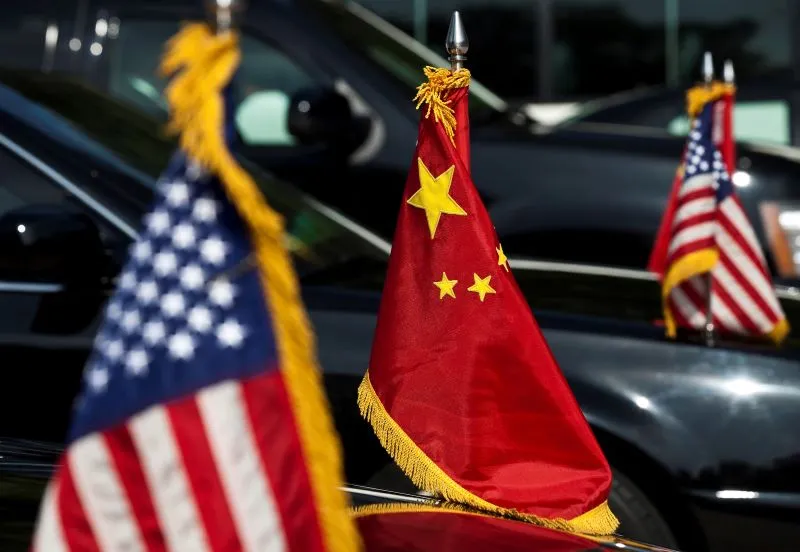 This is the 118th article in the series —
This is the 118th article in the series — The China Chronicles.
Read the articles here.
As coalitions of countries mushroom in the Indo-Pacific spurred by the acknowledgment of it as the engine of growth and centre of gravity, the preservation of the ‘rules-based international order’ has assumed the position of being a fundamental pillar for these networks of partnerships to form. The term has been accorded both prominence and value and has to an extent become the delineation point for the identification of countries upholding or discarding it. It is a useful exercise, therefore, to understand the meaning and implications of a term that is poised to influence the geopolitical landscape of the Indo-Pacific.
Understood from this perspective, the reason behind the term Indo-Pacific’s revival can be accorded to the rise of a worldview and a system of values that is in stark opposition to that propagated and nurtured by the US — one that is being asserted vehemently by China.
The origin of the term can be traced back to the post-World War II order and the institutions it gave birth to — centered on the United Nations and by extension led by the United States (US). Concepts associated with the US-led perspective of a rules-based international order include liberal international order and international rule of law. Understood from this perspective, the reason behind the term’s revival can be accorded to the rise of a worldview and a system of values that is in stark opposition to that propagated and nurtured by the US — one that is being asserted vehemently by China. The latter’s worldview is based on the
tianxia theory (meaning “all under heaven”) which has intriguing distinctions from western philosophies. The
tianxia system envisions an inclusive and harmonious
world institution as the highest political unit as a remedy for the existing ailing system. This, almost utopian theory, is in conjunction with China’s
‘middle kingdom’ narrative — as the superior civilised centre of the world with other countries being beholden to it.
Prima facie, the standpoints of both Washington and Beijing appear to be justified. The reality is that the problem lies not in the individual perspectives of either the US or China, but rather in how these perspectives are arrived at and subsequently, the steps that are being undertaken to operationalise each of these positions. The US-led vision is the result of and associated with the new institutions and forms of governance that were established in the post-war period, drawing from the failures of previous mechanisms (such as the League of Nations) and fresh geopolitical imperatives. By contrast, the Chinese perspective is rooted in its historical experiences as a civilisation. China is skeptical about the composition of the US-led understanding of a peaceful and stable world order largely because of what it perceives are
“unequal treaties” and double standards with reference to its own history and in which China is perceived as an “
imaginary enemy.”
The reality is that the problem lies not in the individual perspectives of either the US or China, but rather in how these perspectives are arrived at and subsequently, the steps that are being undertaken to operationalise each of these positions.
Since the point of divergence is a fundamental one, each side is resolute in viewing its position as being justified. Beijing is perhaps more so. What is important to consider, however, is that the world has transitioned across various forms of governance architectures with legal demarcations of territory, jurisdiction, and rights alongside legal procedure being accorded higher value by more and more nations with the progress of time. This aspect is in stark departure to China’s understanding of its international legal rights because according to Beijing these rights derive from history and not from modern international law as it has taken shape in the post-war period. Despite the fact that China is signatory to UN legal resolutions, its disregard for the verdict of the International Court in the arbitration case brought by the Philippines and the explanations cited — which includes the reasoning that the Court does not have any jurisdiction in the matter — indicates clearly its indifference towards established procedures and institutions when they do not conform to its own frame of reference.
Beijing’s stance is most evident from its territorial assertions in the South China Sea and in its recurrent justifications of the same via official responses and military actions. Indeed, in terms of domestic political positioning, China is driving the message that its actions are
designed to fix the shortcomings of a global governance system dominated by the US.
Threats of ‘fragmentation’ have comprised a major aspect in studies of international systems and international rules and as demonstrated by history, states in power interpret and employ
fundamental rules and ideals of international law in often divergent ways. What is at stake, therefore, is whose interpretation of a rules-based system will assume primacy. In other words, concerns regarding the threats of fragmentation pertain not to the dissolution of international rules and regulations, but to the emergence of competing systems of rules which may result in incoherence and conflict in global interactions. In the contemporary context and with reference to the Indo-Pacific, safeguarding the already established system of interactions and legal terms has become a significant endeavour as this geography has turned out to be the most vulnerable. This is why policymakers and practitioners are sounding the alarm bells through white papers, official statements, research, and so on claiming, for instance, that the
rules–based global order introduced in 1945 is now under threat, placing the world at a dangerous ‘inflection point.’ Other aspects of the contention include estimations with respect to whether a rules-based order
must work to the advantage of the majority and not a minority; what
role it should play in a country’s foreign policy, and so on.
Concerns regarding the threats of fragmentation pertain not to the dissolution of international rules and regulations, but to the emergence of competing systems of rules which may result in incoherence and conflict in global interactions.
It is believed that the inefficacy of the established order to pose as a credible counter or deterrence for China is evident from the repeated violations of international maritime law along with disregard for the jurisdiction and significance of international institutions. In recent years, therefore, narratives seeking to uphold the existing order have sought to
ground it in operable themes such as ‘free and open Indo-Pacific’ which comprise the foundation for the building of ‘like-minded partnerships.’ Conversely, China sought to bolster its own position through systematic blows at the tolerance threshold of this very international order. While concerns such as the oft-cited debt-trap diplomacy, wolf-warrior diplomacy, para-military activities, and others continue to spur and unite a variety of coalitions, an effective and credible deterrence mechanism is yet to take shape. Meanwhile, Beijing’s slant of a rules-based order will continue to gain ground.
The views expressed above belong to the author(s). ORF research and analyses now available on Telegram! Click here to access our curated content — blogs, longforms and interviews.



 This is the 118th article in the series — The China Chronicles.
Read the articles
This is the 118th article in the series — The China Chronicles.
Read the articles  PREV
PREV


